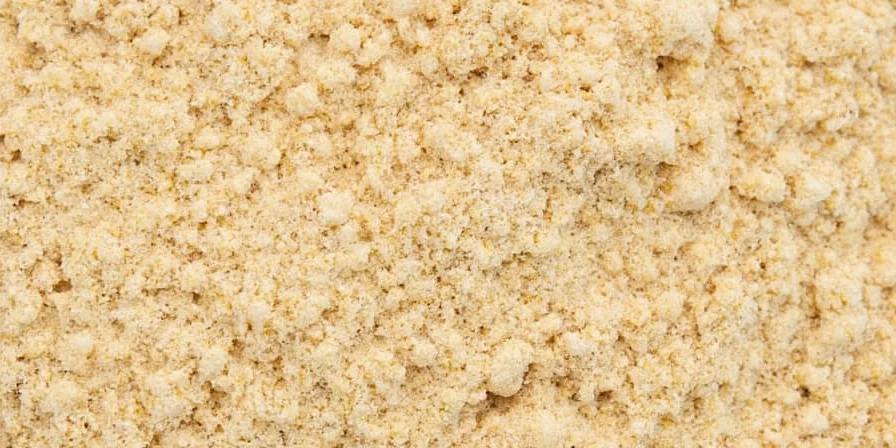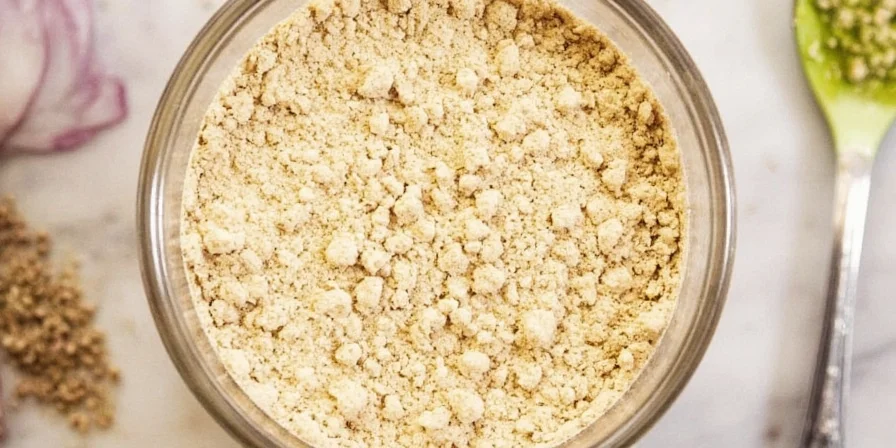Unlocking the Magic of Onion Powder in Your Kitchen

Ever opened a recipe that calls for onion powder and wondered, ‘how much onion powder equals one onion’? You're not alone. It's one of those questions that seems simple but can be tricky to answer accurately. In this blog, we’ll dive deep into the world of onion powder—its uses, storage, and hacks to make it your kitchen’s secret weapon. Whether you're a seasoned chef or a curious home cook, this guide is packed with practical tips, scientific insights, and a dash of fun to help you make the most out of this versatile spice.
Understanding Onion Powder: What is it?
Onion powder is a dehydrated form of finely ground onions. It's made by slicing onions, drying them at low temperatures, and then grinding them into a fine powder. This process preserves the flavor and nutrients of the onion while making it a long-lasting ingredient that’s easy to store and use. Onion powder is often used in soups, stews, sauces, and even as a seasoning for meats and vegetables.
Compared to fresh onions, onion powder has a more concentrated flavor and a longer shelf life. It also adds a nice depth of flavor without the strong, pungent bite of raw onions. However, it lacks the moisture and texture of fresh onions, so it’s not a direct substitute in every recipe. Let’s break it down.
How Much Onion Powder Equals One Onion?
Here’s the answer to that burning question: one medium-sized onion (about 150 grams or 5.3 ounces) is roughly equivalent to 1 tablespoon (about 7 grams) of onion powder. However, this can vary depending on the size of the onion and the coarseness of the powder.
| Onion Size | Weight (grams) | Equivalent Onion Powder (tablespoons) |
|---|---|---|
| Small (100g) | 100g | 0.75 tbsp |
| Medium (150g) | 150g | 1 tbsp |
| Large (200g) | 200g | 1.5 tbsp |
Keep in mind that this is a general guideline. If you're substituting in a recipe, it’s always a good idea to start with less and adjust to taste. Onion powder is quite potent, and a little goes a long way.
Why Onion Powder is a Must-Have in Every Kitchen
Onion powder is more than just a convenient substitute for fresh onions—it’s a flavor powerhouse. Here are a few reasons why you should consider keeping it in your spice cabinet:
- Long Shelf Life: Unlike fresh onions, which can spoil within a few weeks, onion powder can last for up to a year if stored properly.
- Consistent Flavor: No more worrying about the flavor of onions varying from one batch to the next. Onion powder provides a consistent taste every time.
- Easy to Use: No chopping, no peeling—just a quick sprinkle, and you’re good to go.
- Great for Cooking in Advance: Onion powder is perfect for making spice blends, rubs, or marinades in advance and storing them for later use.
How to Use Onion Powder in Cooking
Onion powder is incredibly versatile. Here are some of the best ways to use it in your cooking:
- Soups and Stews: Add it early in the cooking process to infuse the broth with a deep, savory flavor.
- Marinades and Rubs: Mix it with garlic powder, paprika, and salt for a delicious meat rub or marinade.
- Seasoning for Vegetables: Sprinkle it over roasted vegetables for a quick and easy seasoning.
- Bread and Baked Goods: Use it in bread dough or as a seasoning for savory baked goods like biscuits or scones.
- As a Flavor Enhancer: Add a pinch to sauces, gravies, or even scrambled eggs for extra depth of flavor.
Pro tip: When using onion powder in a recipe, always add it early in the cooking process. This allows the flavors to develop and integrate with the other ingredients.
Onion Powder Storage Hacks: Keep It Fresh for Longer
Proper storage is key to keeping your onion powder fresh and flavorful for as long as possible. Here are some expert tips to help you store it like a pro:
1. Store in an Airtight Container
Onion powder is highly sensitive to moisture and air. To keep it fresh, store it in an airtight container made of glass or food-grade plastic. This will help protect it from humidity and prevent it from absorbing odors from other spices.
2. Keep It Cool and Dark
Heat and light can degrade the quality of spices over time. Store your onion powder in a cool, dark place, such as a pantry or a spice cabinet that’s not near the stove or oven.
3. Avoid Moisture at All Costs
Moisture is the enemy of spice storage. Make sure the container is completely dry before adding the powder, and always close it tightly after each use. If you live in a humid climate, consider using desiccant packets inside the container to absorb excess moisture.
4. Use It in a Dry Environment
If you're using onion powder in a recipe that requires moisture (like a soup or stew), it’s best to add it near the beginning of the cooking process. This allows the powder to dissolve and blend into the dish without clumping or burning.
5. Label and Date Your Spices
It’s easy to forget when you last used your onion powder. Label the container with the date you opened it, and try to use it within 6-12 months for the best flavor. This helps you keep track of your spices and avoid using old, stale ones.
Onion Powder vs. Fresh Onions: A Flavor Comparison
While onion powder is convenient and long-lasting, it’s not a perfect substitute for fresh onions. Here’s a breakdown of the differences between the two:
| Characteristic | Fresh Onions | Onion Powder |
|---|---|---|
| Flavor | Bold, pungent, and fresh | Deep, savory, and more concentrated |
| Texture | Crunchy and fibrous | No texture; adds flavor only |
| Shelf Life | Short (weeks to months) | Long (up to a year) |
| Convenience | Requires chopping and peeling | No preparation needed |
| Use in Recipes | Best for raw applications or early cooking stages | Best for simmering or baking |
As you can see, both have their strengths. Fresh onions are great for salsas, salads, and dishes where texture is important, while onion powder is ideal for soups, stews, and baked goods.
Common Mistakes to Avoid with Onion Powder
Even the best spices can be misused. Here are a few common mistakes to avoid when working with onion powder:
- Using too much: Onion powder is potent, so a little goes a long way. Start with a small amount and adjust to taste.
- Adding it too late: If you add onion powder towards the end of cooking, it may not dissolve properly and could burn or clump.
- Storing it in the fridge: While refrigeration may seem like a good idea, it can cause condensation and moisture to build up in the container, leading to spoilage.
- Mixing it with wet ingredients: Onion powder doesn’t dissolve well in wet environments. Add it to dry ingredients first before mixing with liquids.
Onion Powder in Global Cuisines: A Flavor Journey
Onion powder isn’t just for Western cooking. It’s used in a variety of global cuisines to add depth and flavor. Here are a few examples:
- Indian Cuisine: Used in spice blends like garam masala and as a base for curries and gravies.
- Mexican Cuisine: Found in taco seasoning and as a component of adobo mixtures.
- Italian Cuisine: Used in tomato-based sauces and as a seasoning for pasta dishes.
- Chinese Cuisine: Often mixed with other spices to create savory flavor bases for soups and braised dishes.
Whether you're cooking up a storm in the kitchen or experimenting with new flavors, onion powder can be a valuable addition to your spice arsenal.
Final Thoughts: Make the Most of Your Onion Powder
Now that you know how much onion powder equals one onion, you’re one step closer to mastering this versatile spice. By understanding its uses, storage, and flavor profile, you can elevate your cooking and make the most of every jar on your shelf.
Remember, the key to great cooking is using the right ingredients in the right way. So go ahead—grab that jar of onion powder and let it work its magic in your next dish.
Happy cooking, and may your kitchen always be filled with the rich, savory flavors of onion powder!

Keywords: onion powder, spice storage, onion powder substitute, onion powder uses, onion powder recipes, onion powder hacks, how much onion powder equals one onion










 浙公网安备
33010002000092号
浙公网安备
33010002000092号 浙B2-20120091-4
浙B2-20120091-4